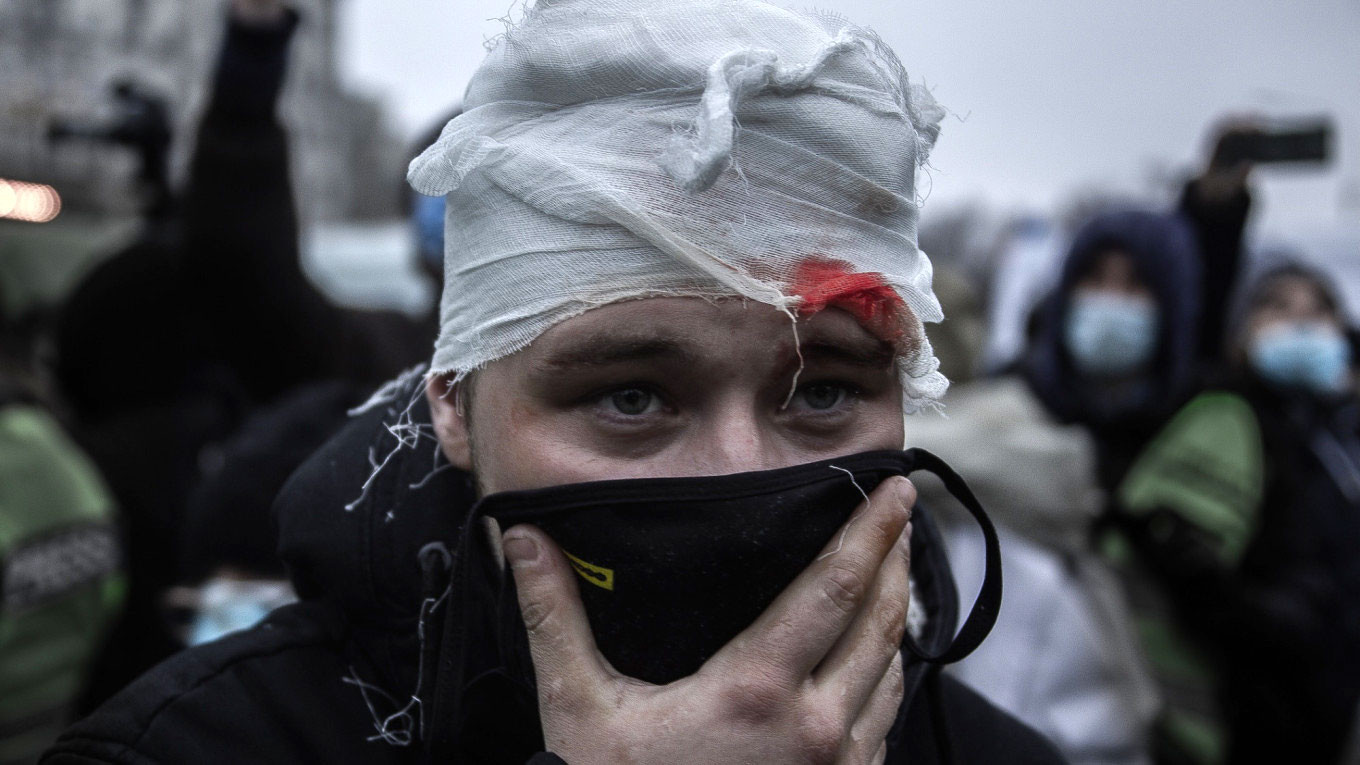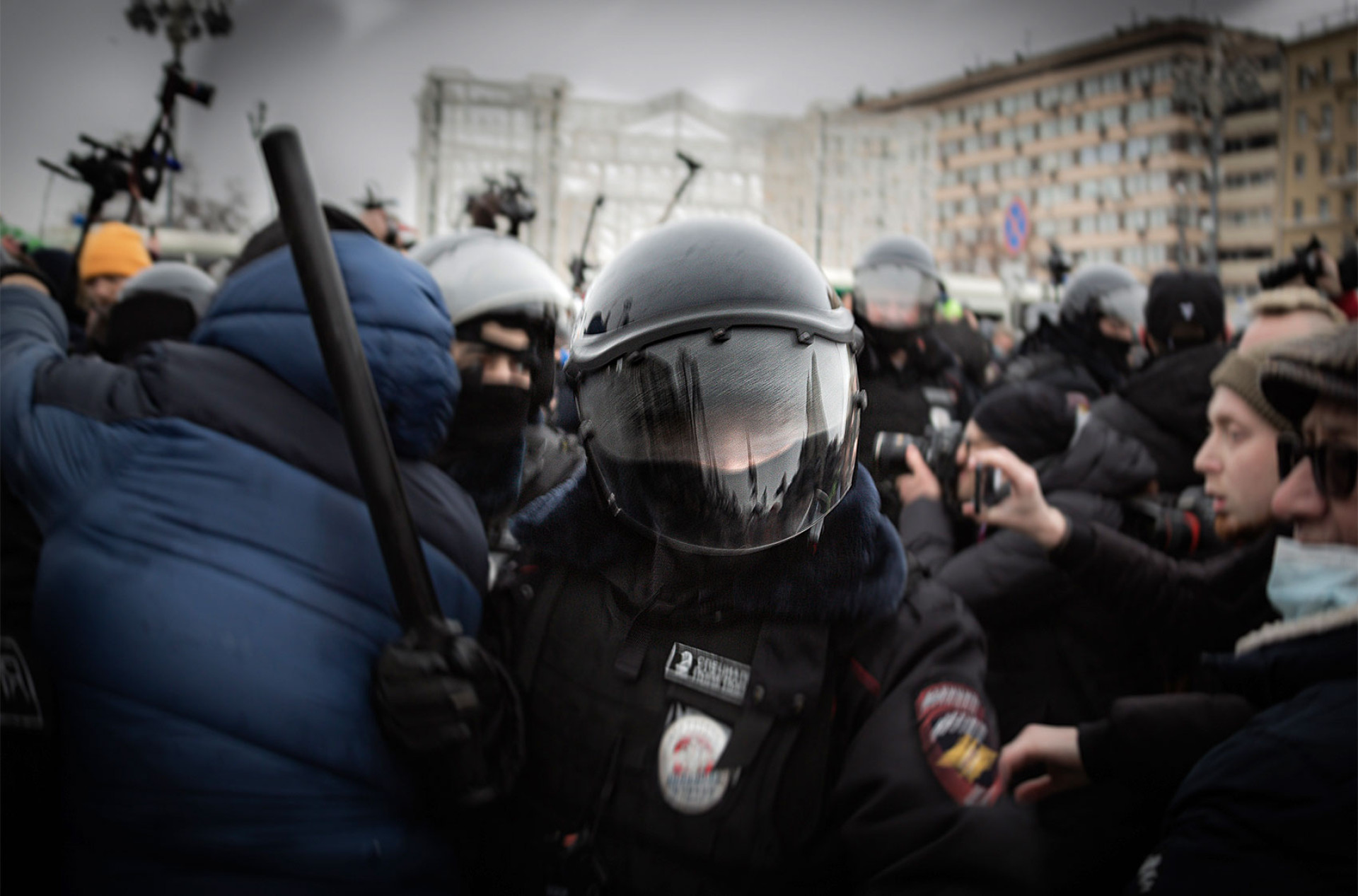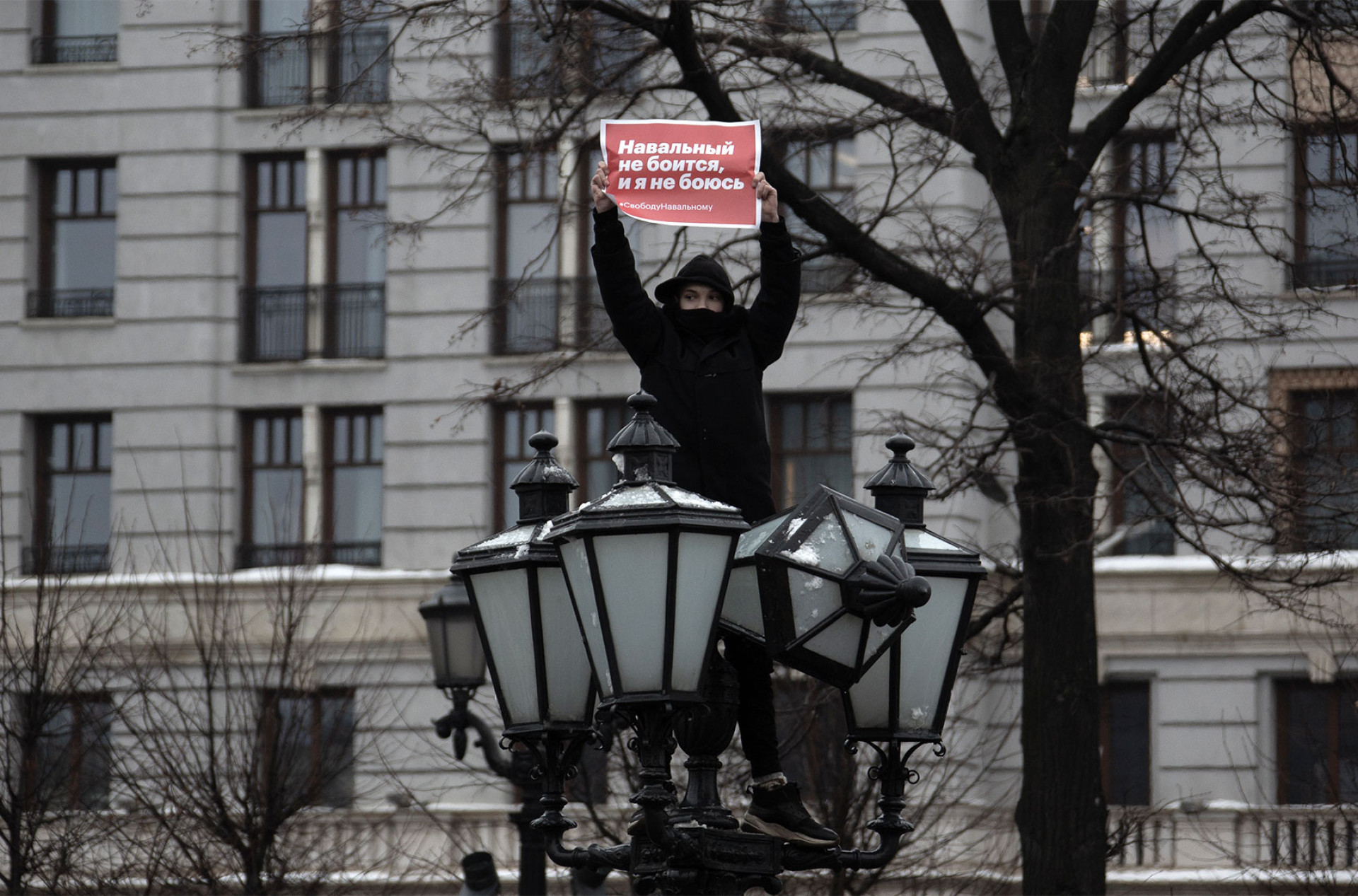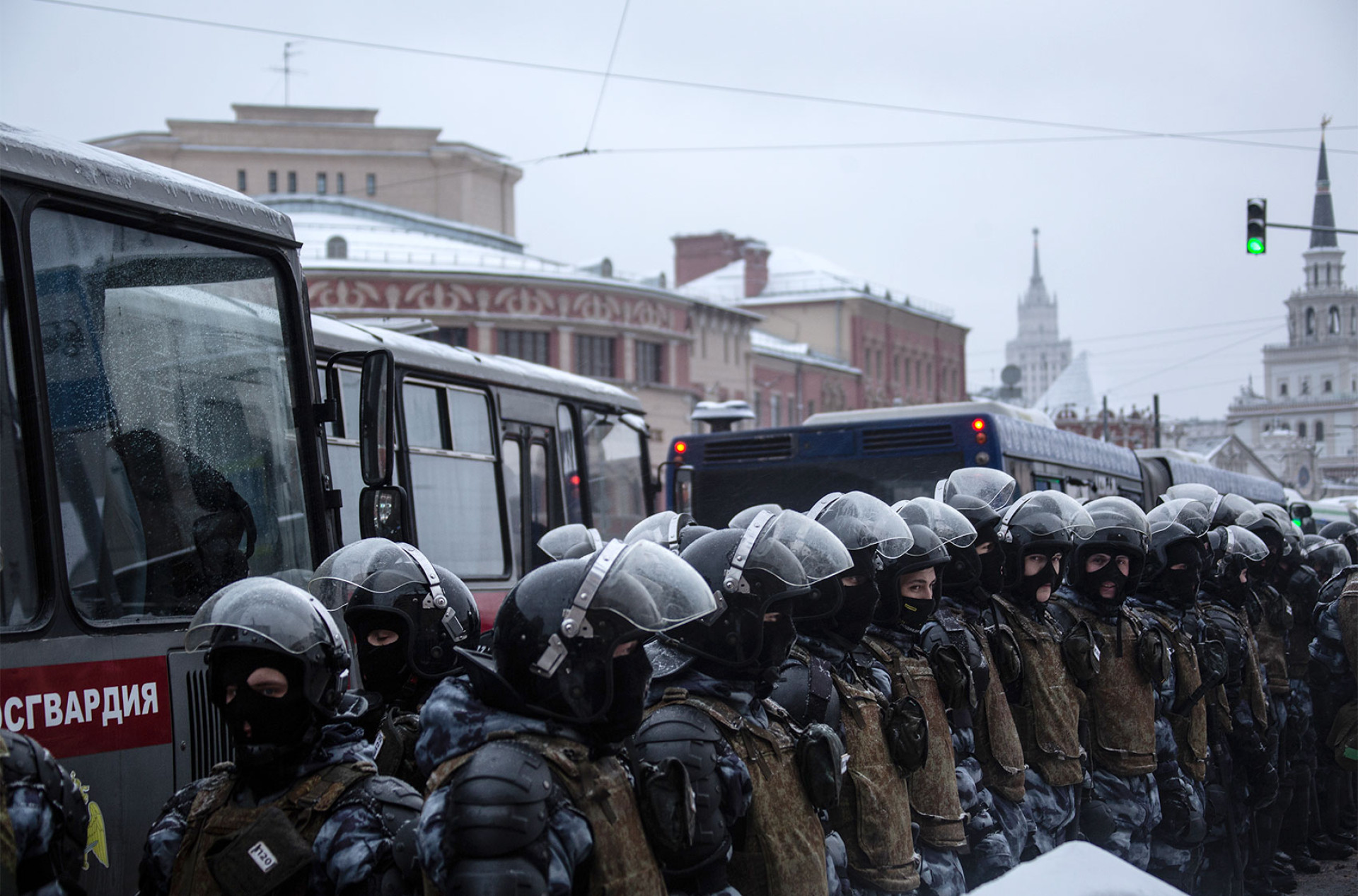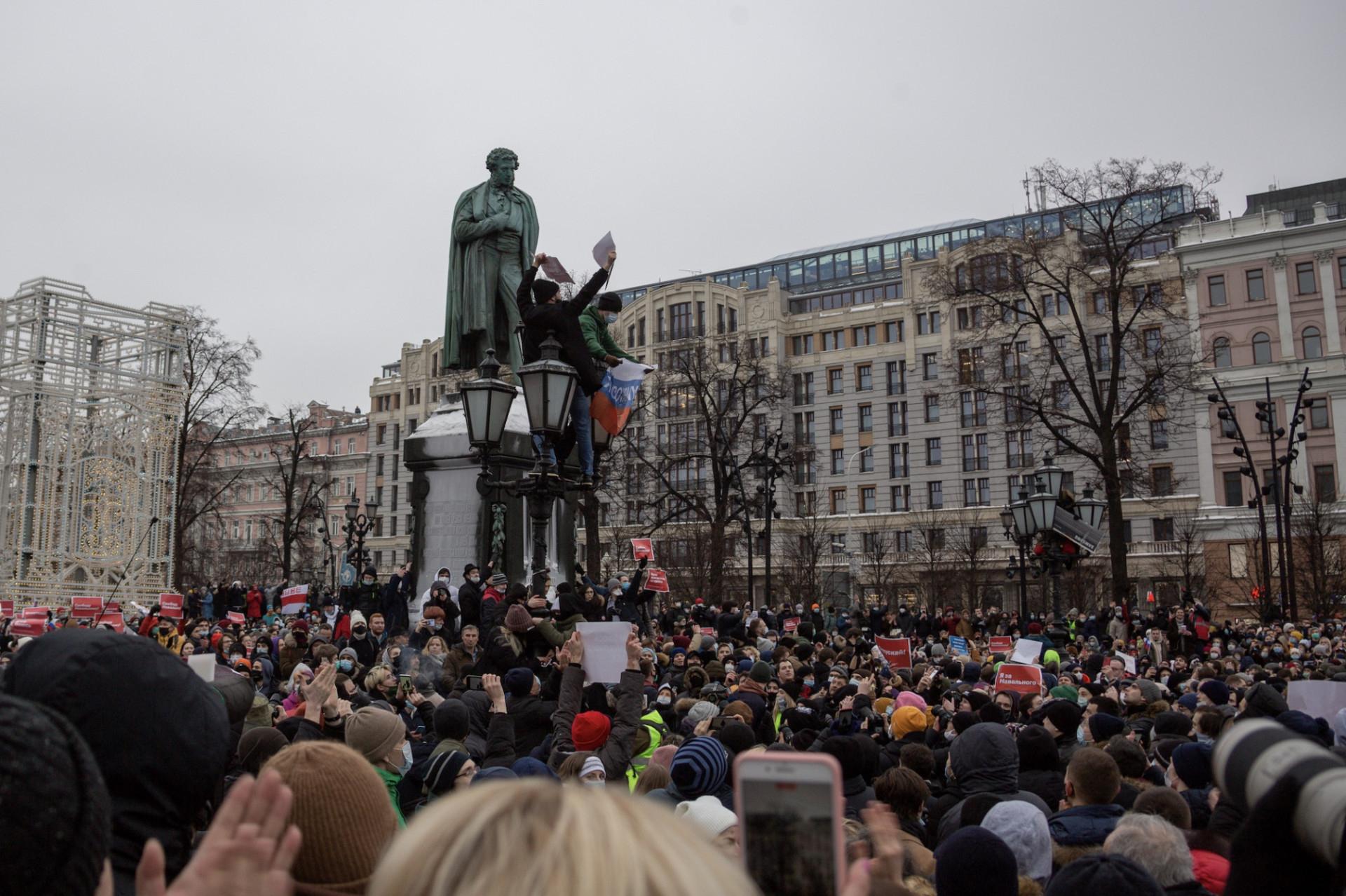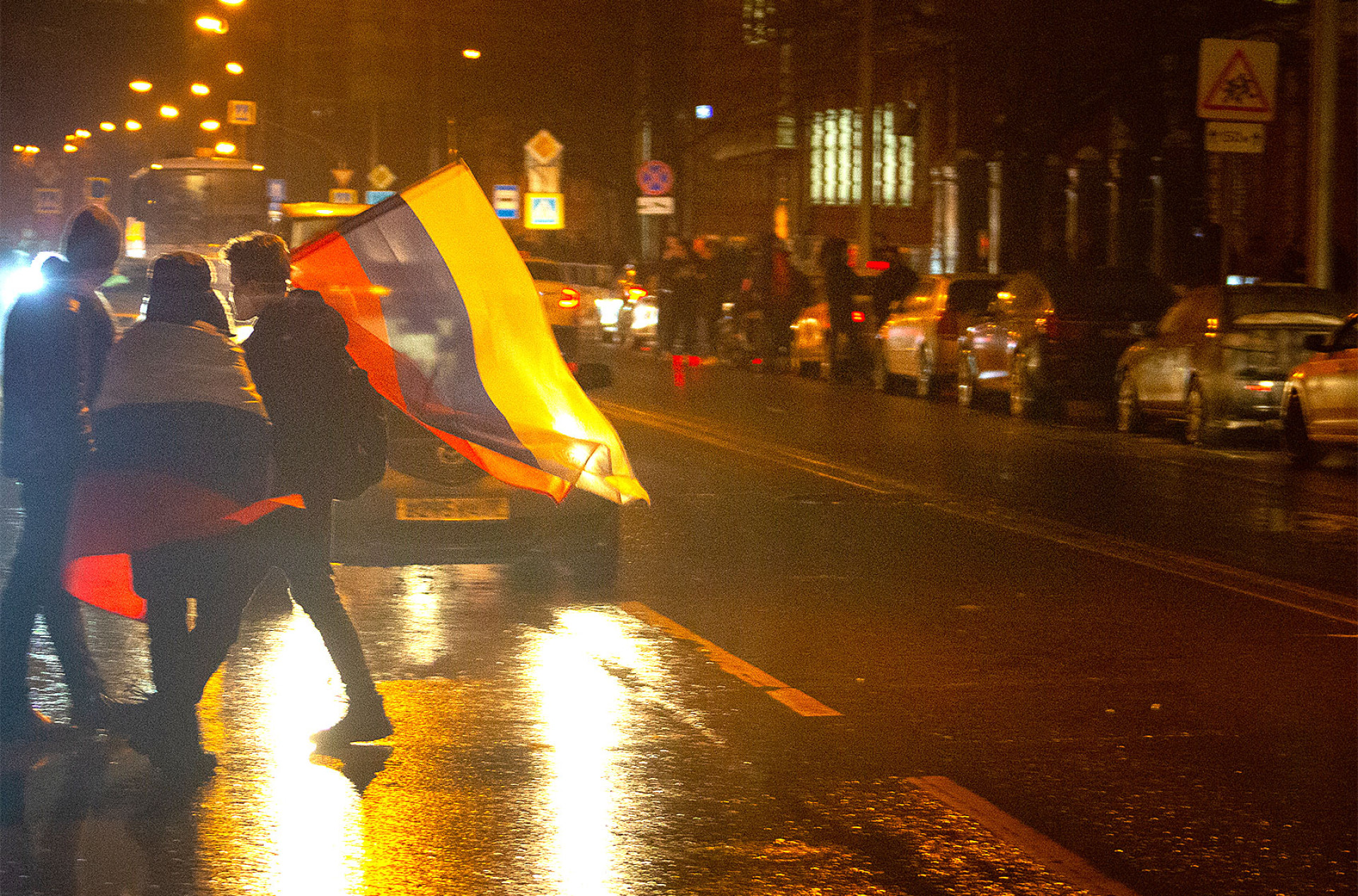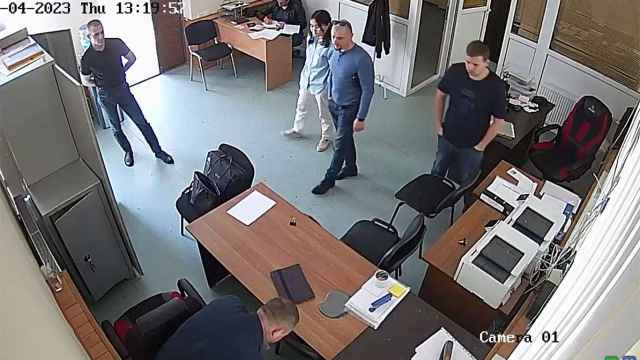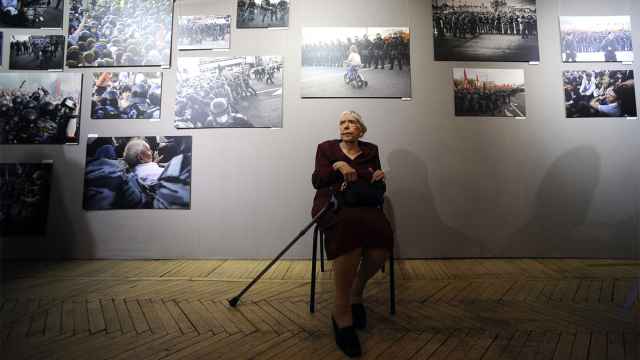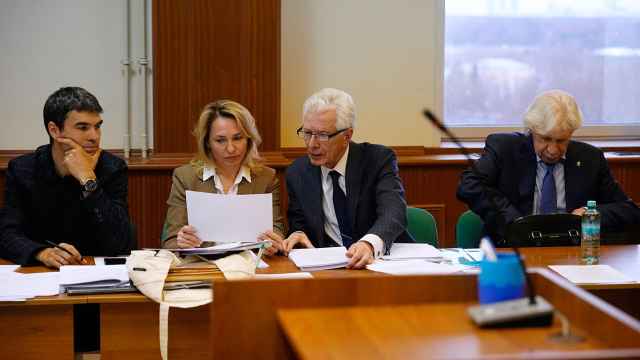It has been a year since I started working at OVD-Info, one of Russia’s leading independent human rights watchdogs. As the situation in Russia grows more depressing every day, my friends and relatives often ask why I still do it. While I enjoy writing, it is fundamentally unpleasant to spend every day documenting torture, death, and lives spent behind bars.
I have worked as a freelance crisis correspondent for a while, so I am used to writing about suffering and sacrifice. Yet, when covering wars and rallies, you get an adrenaline high that pushes you onwards. Every word feels like a small victory simply by the virtue of staying alive to write it. In my current job — communicating the work OVD-Info does to the English-speaking world — there is no such thrill. There is only a grueling marathon without an end in sight.
OVD-Info was founded 12 years ago, amid what English-language media called the Snow Revolution. Sparked by reports that the presidential election results were fraudulent, these protests called for Russia to be transformed into a democracy with liberty and human rights at its core. The goals of those protests were not fulfilled. Instead, the Kremlin tightened the screws on the country, slowly suffocating its civil society.
The Kremlin saw this kind of popular mobilization as a serious threat after seeing the color revolutions that enacted change in neighboring countries. The promise of democratic change was anathema to Russia’s leadership. So, Putin and his cronies spent the years that followed 2012 building a sophisticated system of repression.
OVD-Info grew as an organic response to this system. Our name references the police code for police precincts. We started by using social media to provide information about the people detained at protests — their names, the precinct in which they were held, and whether they were in critical condition.
The overwhelmingly positive response from civil society led to a drastic expansion. OVD-Info built a website and a legal aid wing. We paid for lawyers to protect the victims of the Kremlin: people whose freedoms to express themselves and protest were violated.
Currently, our legal aid wing has over 400 affiliate lawyers working across Russia. We run an emergency hotline for Russians who find themselves in trouble at a protest or at home. This hotline has become a part of Russia’s protest culture. Those of us who went out to protest in recent years often wrote it on our wrists. In the winter of 2021, when I was running around Moscow to report on the protests against Alexei Navalny’s arrest, I had the number memorized just in case.
Over time, the project continued to grow until we started publishing in-depth coverage of the Kremlin’s repression in both Russian and English. This not only allows us to provide information to activists, but also to give a voice to the people who are otherwise left voiceless. People like an elderly furnace operator who was sentenced to three years for running an anti-war radio station, or a couple sentenced to seven and 6.5 years for anti-war graffiti in their hometown.
All this work would be impossible without hard data, which is hard to come by. The state deliberately makes data collection difficult in order to obscure its attack on human rights. To penetrate this veil, we work with monitors in Russia and abroad that compile mammoth databases showing the scale of political persecution, wartime crackdowns and more, packaging them for both the international and domestic human rights community and media groups.
We also provide IT services to help activists and ordinary citizens, such as our Telegram bot, which allows people to quickly get answers to legal questions they might have while getting detained or otherwise harassed by the authorities.
Furthermore, the size of our volunteer wing shows just how ingrained OVD-Info has become into Russian civil society. We have some 7,000 volunteers around the world contributing to our project as translators, editors and coders. For me, the indispensable role OVD-Info has played over the past few years is what motivated me to start working there.
OVD-Info’s work constantly pushing against the current is grueling. Those of my friends who don’t closely follow Russian affairs often ask why we are so powerless to stand up to the Kremlin. The reality is that we, just like other human rights projects, can’t do work that is flashy and sexy. Our victories are marginal. But they are still victories, even if we only make a difference for one person.
Take Maksim Lypkan, a teenage anti-war activist who faced psychological and physical threats in prison. Our public campaign saved him from humiliation and torture, as his tormentors were transferred to another cell. We are currently campaigning to save Igor Baryshnikov, an anti-war activist who will die in prison unless he is transferred to a hospital. If we are successful, we could save his life. Our campaign has already led to him being seen by a doctor.
There is an old Russian punk song about combating authoritarian repression, where the authoritarian state is represented by a police major, who is walking towards the innocent, set to wipe them out. The refrain goes: “The major will fall, for we are ice under his feet.” To me, this is an excellent example of how Russian human rights activists think. We know that the Russian state is bigger and stronger than us. We know that we have little support globally, where we are often laughed at and dismissed as Putin’s mindless zombies. Yet, we keep going.
I do my work, despite its grueling hopelessness, because I know I have no other choice. I want to see a Russia that is at peace with itself and its neighbors, a Russia that is prosperous and free. I care deeply about the region because I have friends and relatives throughout the post-Soviet space.
And I know that no battlefield victory will put an end to the repressive, imperialist drive motivating the Kremlin. Such a change has to come from within. And the change may only come if Russia’s society is united, learns to value human rights and refuses to be afraid. For that goal, it is vital that projects like OVD-Info keep on their grueling, profoundly unsexy work. We have to make sure that ordinary people are not left alone, face-to-face with the system.
A Message from The Moscow Times:
Dear readers,
We are facing unprecedented challenges. Russia's Prosecutor General's Office has designated The Moscow Times as an "undesirable" organization, criminalizing our work and putting our staff at risk of prosecution. This follows our earlier unjust labeling as a "foreign agent."
These actions are direct attempts to silence independent journalism in Russia. The authorities claim our work "discredits the decisions of the Russian leadership." We see things differently: we strive to provide accurate, unbiased reporting on Russia.
We, the journalists of The Moscow Times, refuse to be silenced. But to continue our work, we need your help.
Your support, no matter how small, makes a world of difference. If you can, please support us monthly starting from just $2. It's quick to set up, and every contribution makes a significant impact.
By supporting The Moscow Times, you're defending open, independent journalism in the face of repression. Thank you for standing with us.
Remind me later.



